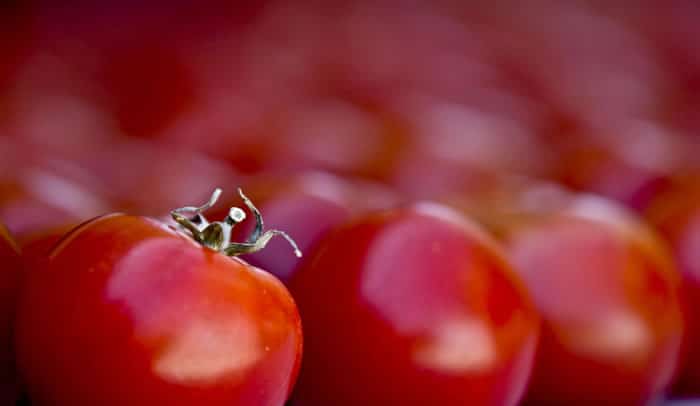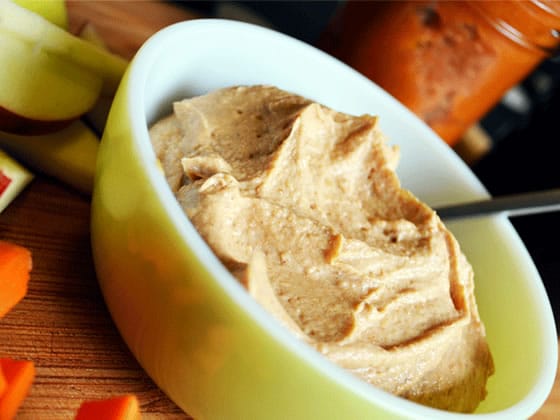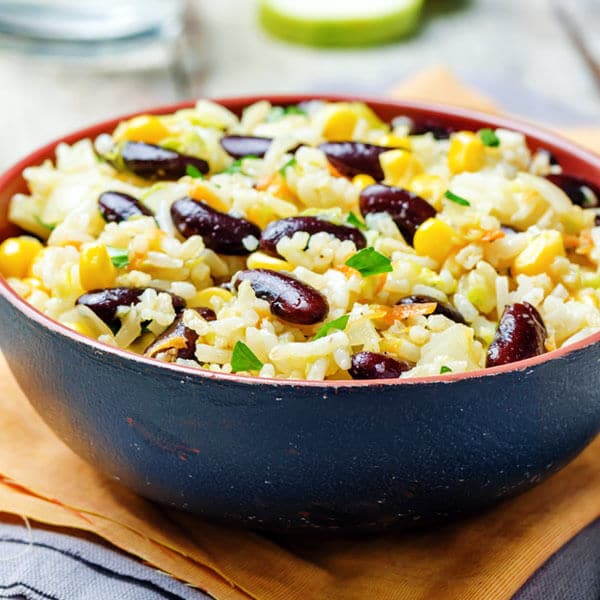Want to be happier? Eat seasonally!
Mar 20, 2013, Updated Mar 28, 2015

This post originally appeared as a guest post on the Attune Foods blog.
I remember a summer day, back in high school, hanging out with my friend Jordan, as we were eating some watermelon. Or maybe it was peaches. Or perhaps plums. Anyway, as he sank his teeth into the delectable fruit, he said over and over again, “I love summer fruit!”
At the time, I didn’t fully understand what he was talking about. I liked peaches and watermelon, too, but it didn’t fully register that we couldn’t actually get peaches and watermelon all year round – even in Los Angeles – or, if we did, they didn’t taste nearly as good.
Flash forward to today, and now I realize that eating seasonally has made me happier. Here’s why.
1. Seasonal food simply tastes better.
Even if you can get your hands on tomatoes in January, when’s the last time you had a good tomato in the winter? Probably never. They’re mealy, bland, pale-pink baseballs that been have bred primarily to survive a journey of thousands of miles. But when you get a tomato at the peak of the season from a local farm, it’s easy to remember that tomatoes are fruit, not vegetable. The same can be said of just about any produce at the height of the season: It tastes better, and is therefore far more enjoyable.
2. It’s healthier.
When we eat fruits and vegetables in season, they’re more nutritious. Bonus points if they’re local, since they haven’t had to travel as far to reach you (which means they’re fresher – so the nutrients haven’t had time to wither away). Eating more nutritious food leads to better health, of course, which in turn leads to increased happiness.
Also, anything that actually has a season is going to be inherently more healthful. Think about it – anything that’s seasonal is going to be a fruit or vegetable. And we all know that fresh, unprocessed fruits and vegetables are among the healthiest foods we can eat. (One could also make a case for meat from animals that don’t come from a factory farm.)
3. It’s less expensive.
It’s a textbook case of supply and demand: If you buy something at the height of the season, when that particular food is more plentiful, the prices are lower. That leaves you more money to spend on other things – or better yet, awesome experiences.
4. Delayed gratification leads to happiness.
Happiness researchers (yes, they exist – check out the excellent work of Martin Seligman) have shown time and time again that if we get everything we want, when we want it, we’re actually less happy than if we have to wait to get what we want. As I write this, in the middle of winter, I’m dreaming of fresh figs off of our tree and decadent stone fruit from the farmer’s market. Now picture the look of elation on my face, when I finally get to sink my teeth into that fantastic, perfectly ripe, intensely sweet nectarine. Yep, that’s worth the wait.
5. It’s good Karma.
I don’t want to get too spiritual here, but when we recognize that everything is interconnected – especially while our society may be conspiring to convince us otherwise – things just work better. I may not be able to quantify this, but I believe there’s something to it: Life is just better when we’re in sync with the planet and the way we produce our food. When you eat seasonally, you’re not fighting nature, you’re working with her. Said another way, the inputs and the outputs of the system are in balance, and things fall into place.
On the other hand, if you’re fighting nature, it requires far more effort to satisfy the demand. That fight is not sustainable, of course, and often has net-negative outcomes. For example, if you want a tomato in January, say, odds are good it came from Florida, where the tomato pickers suffer in horrible working conditions, and the tomato has had to travel thousands of miles to reach you (unless you live in Florida!) You may think you’re just getting a lousy-tasting tomato (and that alone is bad enough!), but I believe that it’s also out-of-sync with what’s best for the world, and what goes around, comes around – both good and bad.
—
Photo: “Project 365 – Day 124 Tomatoes” © 2012 by Nina Matthews, used under Creative Commons License.




















